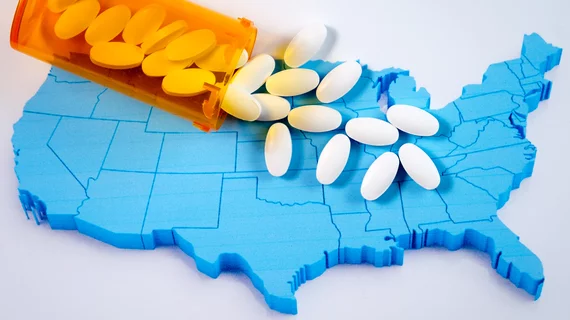Major companies selected in FDA's drug tracking blockchain pilot
IBM, along with KPMG, Merck and Walmart have been selected by the FDA to participate in a blockchain project that aims to improve the drug supply chain.
The program, allowed under the U.S. Drug Supply Chain Security Act, will look at assisting drug supply chain stakeholders to develop an electronic, interoperable system to identify and trace certain prescription drugs distributed in the United States. The FDA previously announced the pilot program.
“Our supply chain strategy, planning and logistics are built around the customers and patients we serve," Craig Kennedy, senior vice president of supply chain at Merck (MSD), said in a statement. "Reliable and verifiable supply helps improve confidence among all the stakeholders—especially patients—while also strengthening the foundation of our business."
The program also aims to reduce the time needed to track and trace inventory and keep the integrity of products, like ensuring they are kept at the right temperature. The project will be completed by the end of 2019, with the results to be published in a report.
Several of the companies are also involved in blockchain projects for food supply. Walmart is also involved in a blockchain consortium, MediLedger, to track pharmaceuticals.
“With successful Blockchain pilots in pork, mangoes and leafy greens that provide enhanced traceability, we are looking forward to the same success and transparency in the biopharmaceutical supply chain," Karim Bennis, Walmart's vice president of strategic planning and implementation of its Health and Wellness division, said in a statement.

